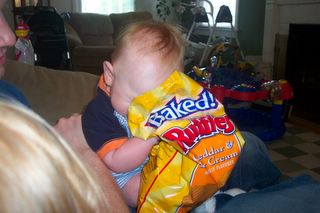After the accounts of Stephen (a man of great power who laid down his life) and Simon (a man of power whose lust for more power brought condemnation upon himself) comes the account of the Ethiopian Eunuch (8:26-40).
A little digging shows that this "baptism passage" says a whole lot about power. The Ethiopian was a servant to the Queen. She ruled for her son, the King, because Ethiopian kings thought themselves to be the sons of the Sun (god). That, they believed, made them much too divine for the business of governing. So the Eunuch was familiar with a son of a god who was so powerful (divine) that he was useless.
Add to that, he himself was a high-ranking official, but being a eunuch may have felt too emascualted to feel powerful. I won't over-analyze here, but the tension between being a powerful man and an emasculated man is too much to ignore.
He is reading Isaiah, perhaps because it contains the good news for eunuchs (Isaiah 56:4, 5... is there a word play in there?). He was reading this from Isaiah 53:
"He was led as a sheep to the slaughter, and as a lamb is silent before the shearers, so he opened not his mouth; 33 in his humiliation, justice was denied him; and who can express the wickedness of the people of his generation? For his life is taken from the earth."

Philip explains to him that this "sheep to the slaughter" was the Messiah, Son of the True God. What a contrast from the son of a god he had already known. Apparently, such a powerful man acting in such a selfless way was very attractive to the Ethopian. He decides to surrender his life to the Lamb in the waters of baptism, which is itself a pouring out of power.
Why does a book about the church's beginnings have so much about the pursuit of power in it? I have an opinion. When surrounded by sheep, the temptation to "power up" and take charge (with all the emotional highs and the status that go with that) is very real and very dangerous. To be right, we, the sheep, must follow the First Sheep, Jesus. He did not pursue his own power, but poured out his power for the good of others. That's what Stepehen was doing. That's what Simon did not get. That is what won the heart of an emasculated Ethiopian powerhouse.

.JPG)









